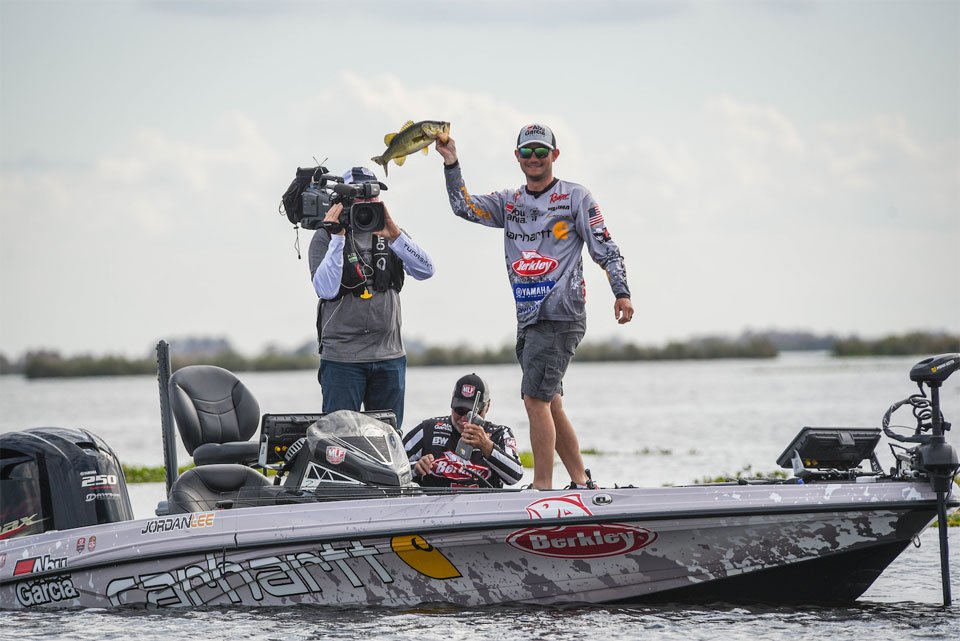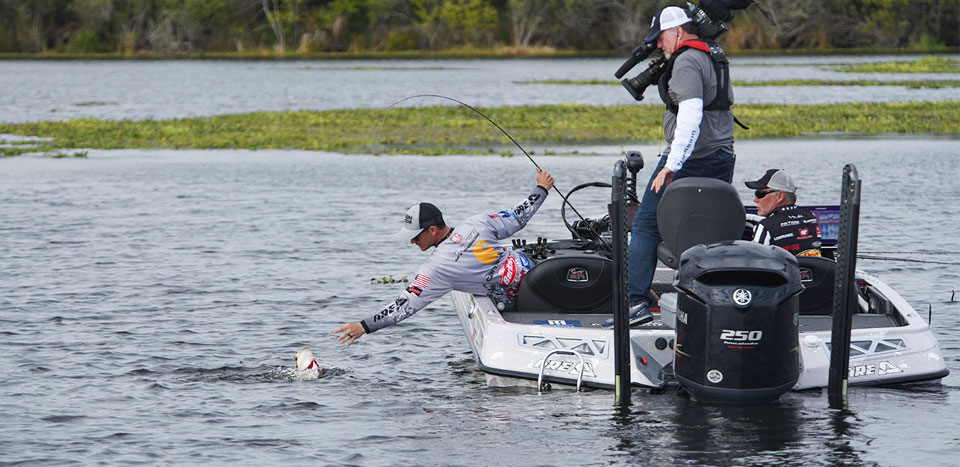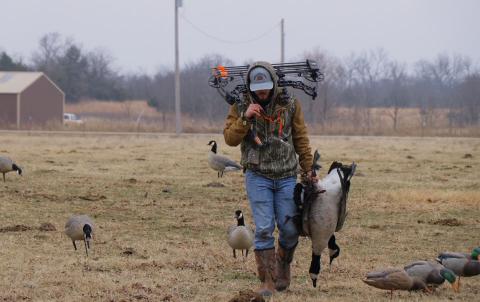Is Jordan Lee the Next Bass Super Star?

Every generation of professional fishermen has a standout hero who wins the big tournaments, including Rick Clunn of Ava, Missouri, Larry Nixon of Bee Branch, Arkansas, and Kevin VanDam of Kalamazoo, Michigan, also a member of the Mossy Oak Fishing Team. Jordan Lee, 27 years old of Grant, Alabama, won the Bassmaster Classics in 2017 and 2018, and last week he won the Major League Fishing (MLF) Bass Pro Tour event at Kissimmee, Florida. With these three major wins, is Jordan Lee the next bass superstar? Only time will tell.
Here’s how this first MLF tournament was set up. For three days, we competed on the Kissimmee chain of lakes. Each day the competitor who caught the most pounds became the tournament leader. The final day all the scores were zeroed, and the top-10 competitors fished the final day, day 4, on Lake Garcia. On the last day, the angler who caught the most pounds of bass won.
The first three days I fished on the Kissimmee chain of lakes, I caught my bass on two primary baits, the Berkley black-and-blue General - a 5-inch stick bait – and a vibrating bladed jig. I fished with an Abu Garcia Revo Rocket Reel with 50-pound test Berkley X9 braided line, and a 7’6” heavy Abu Garcia Fantasista rod. I was fishing the General slowly, trying to catch the bass that were spawning around isolated lily pads.
The other bait that I caught my bass on was a vibrating bladed jig. I targeted submerged hydrilla with that lure. I knew that any time I’d fished around hydrilla in the past, the water was somewhat cleaner than the water in the rest of the lake. I was burning (retrieving the lure really fast) the bladed jig over the hydrilla and getting the bass to react to that bait. I caught some of my bigger bass on that lure. The bladed jig was green pumpkin with a little bit of chartreuse in it. I was fishing an Abu Garcia Revo STX 7.3:1 gear ratio reel that allowed me to swim the bladed jig fast over the submerged hydrilla.
Most of the time, when you're fishing for bedding bass, the rule of thumb is, “The slower you go (retrieve), the more bites you get.” I was fishing really fast, because the bass weren’t grouped up in schools yet and were scattered. Many times when I've fished in water that’s less stained than the rest of the lake, I can make the bass attack the lure, even when they're spawning, by swimming the lure fast. Another factor that helped was the weather was starting to warm up, the water temperature was moving up to about 60 degrees, and the bass started biting better toward the end of the 3-day elimination tournament.
The two biggest fish I caught on the Kissimmee chain were about 4-1/2 pounds each. On the third day of the tournament, the top 40 anglers from the two previous days were fishing, and I finished in sixth place. Then the top 10 got to compete on the last day on Lake Garcia.
The Final Day of the Major League Fishing (MLF) Tournament at Lake Garcia

On the last day of the MLF tournament at Lake Garcia, Jordan lee and nine other anglers had the opportunity to win the tournament and the $100,000 prize money, if he could catch the most pounds of bass on that final day.
On the last day of the tournament, all the scores were zeroed. This was a one-day shoot-out to determine the winner. I had fished this lake once before with some friends 3 or 4 years ago. One or two other competitors also had fished this lake in the past. I felt sure I could catch a few bass on the Berkley General stickbait, casting around isolated lily pads where the bass were spawning. I also knew this lake had a lot of vegetation. Actually I was almost overwhelmed by the vast amounts of vegetation I could see.
We had an opportunity to ride through the lake before the tournament began. I knew the lake was off-color and really shallow. I knew that pinpointing the cleanest water in the lake would be the key factor to winning this tournament. As I put my boat in at the boat ramp, I could see a dense fog on the lake, which made navigating my boat difficult. I also couldn’t see down in the water to try and spot spawning females. However, once the sun came up, as I fished down the edge of the vegetation, I noticed that the water got noticeably cleaner. But I didn’t find that clear water until the end of my second period to fish that day. I only had one period left in the tournament to fish. I’d caught about 17 pounds of bass so far that day, until I found this clean water. The leader already had 25 pounds of bass. I knew I was behind by about 10 pounds.
When the final period began, I instantly started catching bass in that clean-water region, but I only had 2-1/2 hours left to fish. The wind picked up and blew harder. I was fishing a vibrating bladed jig, and I was catching bigger fish on that bait than I’d been catching the entire tournament. Each of these bass weighed from 2-1/2 to 3-1/2 pounds. Then I caught a bass that weighed 4 pounds, 11 ounces, which was my biggest bass caught that day.
I fished the area and attempted to catch every bass that was in that part of the lake. I also tried to expand the amount of the lake I was fishing in that section, and I started catching bass really quickly. I didn’t catch a bass on every cast, however, I was catching them faster than before. Although I could see a few other anglers down the lake from me, I had this 1/2-acre area all to myself. That’s where I caught the bass that enabled me to win the tournament. When the tournament ended, I had caught 55 pounds of bass that day, although I only had about 17 pounds before the last 2-1/2 hours of fishing. I caught 26 bass that weighed a total of 55 pounds.
I won $100,000 for that Kissimmee tournament. Originally, 80 anglers fished this tournament. Next the field was cut from 80 to 40, and the 40th place competitor still won $6,000 without any angler paying an entry fee to enter the tournament. This really exciting tournament was a fun way for me to compete. Our next tournament will be at Lake Conroe in Texas, beginning February 12-17, 2019.



























